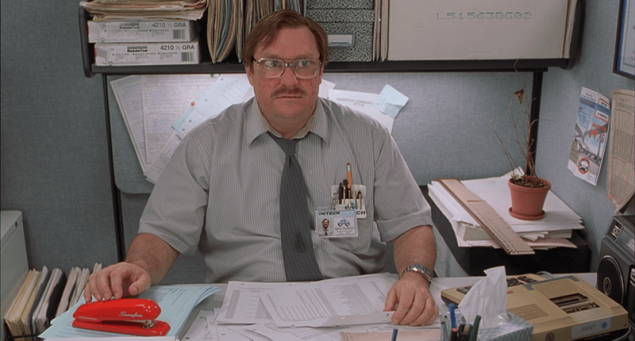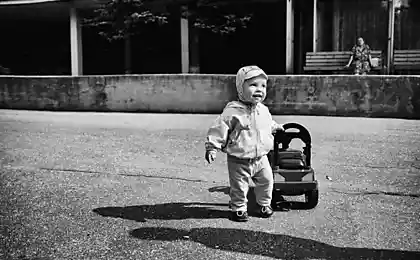556
Their place: how the neighbors around the office affect you and your life
Can you get low performance from colleagues? Alas, you can! But you can learn from the good traits of its neighbors.
A place where you sit in the office can greatly affect how happy and productive you are at work. A new study by Cornerstone OnDemand and Harvard business school shows that the office changes and the opportunity to sit next to someone whose lifestyle complements yours, help easily boost your energy and efficiency.

What is the importance of where you sit?
According to Gallup, today people are more satisfied with their work than ten years ago. But the motivation and retention of employees — are still the main problems employers worldwide, according to a recent report by Deloitte. Unmotivated employees cost the American economy loses up to $550 billion a year due to performance issues caused by dissatisfaction of employees.
The researchers analyzed data on the work of more than two thousand employees of a large technology company with multiple offices in the US and Europe, for two years. It turned out that if you put a number of workers of certain types, it improves the performance and profitability of the company. This increase can be up to 15%.
Researchers specifically analyzed the performance of people sitting around each employee. They studied three types of employees: "production", "station wagons", "quality oriented". Productive — those who have a lot of time, but who are not following the quality. Those who are focused on quality, on the contrary, not so productive. But universals are averages in both directions.
The study found that every employee can have side effect — both positive and negative, depending on the distance from other workers. "Each employee's strengths, and side effect is minimal if it concerns the strengths of humans, but this effect may strongly affect the employee if he comes to his weaknesses".

Behavior is contagious
One of the study's authors Michael Hausman notes that positive results have a much stronger side effect than negative. "If you put a number of strong and weak employee, a weak beginning to work much better, and stronger productivity is almost not affected," he says.
Therefore, Hausman advises not very productive people to sit closer to a strong staff. In contrast, he says, "if you are a good worker, you do not need to avoid weaker colleagues. It's not a zero-sum game. The results of both employees can be better when they sit than when they sit alone."
In this toxic workplace behavior can be as contagious as the flu. Leaders may, even unconsciously, to create a culture that is not conducive to honesty and ethical behavior. In some cases, the stress is transferred to others — it's like passive Smoking. And selfish behavior, studies show, can spread in groups of people.
A new report points to a phenomenon of "density of toxic behavior." "If you plant such a toxic employee within 5-6 meters from another employee, then the probability that this employee will become toxic, increases in two times. If you're surrounded by such toxic people, risk your dismissal for negative actions increases a hundred times," says Hausman.
Is, what we get from birth...
Pure family
However, the positive is reminiscent of Hausman that good results are a much stronger side effect than the weak, and that high productivity is more contagious than low. Why? Perhaps the fact that people tend to compete and tend to keep up with those who are close to them. Therefore, employers should take a closer look to where and with whom you are sitting next to their employees.published
Author: Lydia Dishman
Source: ideanomics.ru/?p=6925
A place where you sit in the office can greatly affect how happy and productive you are at work. A new study by Cornerstone OnDemand and Harvard business school shows that the office changes and the opportunity to sit next to someone whose lifestyle complements yours, help easily boost your energy and efficiency.

What is the importance of where you sit?
According to Gallup, today people are more satisfied with their work than ten years ago. But the motivation and retention of employees — are still the main problems employers worldwide, according to a recent report by Deloitte. Unmotivated employees cost the American economy loses up to $550 billion a year due to performance issues caused by dissatisfaction of employees.
The researchers analyzed data on the work of more than two thousand employees of a large technology company with multiple offices in the US and Europe, for two years. It turned out that if you put a number of workers of certain types, it improves the performance and profitability of the company. This increase can be up to 15%.
Researchers specifically analyzed the performance of people sitting around each employee. They studied three types of employees: "production", "station wagons", "quality oriented". Productive — those who have a lot of time, but who are not following the quality. Those who are focused on quality, on the contrary, not so productive. But universals are averages in both directions.
The study found that every employee can have side effect — both positive and negative, depending on the distance from other workers. "Each employee's strengths, and side effect is minimal if it concerns the strengths of humans, but this effect may strongly affect the employee if he comes to his weaknesses".

Behavior is contagious
One of the study's authors Michael Hausman notes that positive results have a much stronger side effect than negative. "If you put a number of strong and weak employee, a weak beginning to work much better, and stronger productivity is almost not affected," he says.
Therefore, Hausman advises not very productive people to sit closer to a strong staff. In contrast, he says, "if you are a good worker, you do not need to avoid weaker colleagues. It's not a zero-sum game. The results of both employees can be better when they sit than when they sit alone."
In this toxic workplace behavior can be as contagious as the flu. Leaders may, even unconsciously, to create a culture that is not conducive to honesty and ethical behavior. In some cases, the stress is transferred to others — it's like passive Smoking. And selfish behavior, studies show, can spread in groups of people.
A new report points to a phenomenon of "density of toxic behavior." "If you plant such a toxic employee within 5-6 meters from another employee, then the probability that this employee will become toxic, increases in two times. If you're surrounded by such toxic people, risk your dismissal for negative actions increases a hundred times," says Hausman.
Is, what we get from birth...
Pure family
However, the positive is reminiscent of Hausman that good results are a much stronger side effect than the weak, and that high productivity is more contagious than low. Why? Perhaps the fact that people tend to compete and tend to keep up with those who are close to them. Therefore, employers should take a closer look to where and with whom you are sitting next to their employees.published
Author: Lydia Dishman
Source: ideanomics.ru/?p=6925























